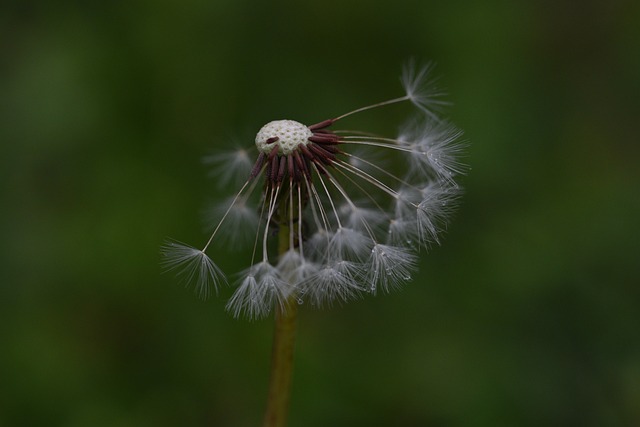THCA (Tetrahydrocannabinolic Acid) and CBD (Cannabidiol) are two non-psychoactive cannabinoids from the cannabis plant, each with unique therapeutic properties. THCA is found in raw cannabis and offers potential benefits like pain relief and anti-inflammatory effects without causing intoxication. It's the precursor to THC and can transform into THC when heated. CBD is known for its calming effects and supports overall wellness, also sans psychoactive influence. When comparing THCA buds to CBD buds, THCA buds contain higher levels of THCA, while CBD buds have more CBD, both within the legal limit of 0.3% THC in many jurisdictions. Users should consider these differences and understand their effects on the endocannabinoid system when choosing between THCA bud vs CBD bud for personal use, keeping in mind that each has its own set of potential side effects and therapeutic applications. It's crucial to adhere to local laws, consult healthcare professionals, and be aware of the varying legal statuses across different locations before incorporating these cannabinoids into any health regimen. The choice between THCA buds and CBD buds should be informed by individual health needs and preferences, with a focus on personalized dosing for optimal therapeutic outcomes and minimal adverse reactions.
Exploring the nuanced effects of THCA flower, this article sheds light on its distinctions from CBD bud and delves into the science behind its potential impacts. We will dissect the side effects associated with THCA consumption, compare its therapeutic properties to those of CBD, and discuss how dosage influences these effects. Safety is paramount, and understanding legal considerations and interactions with other substances and medications is crucial. The entourage effect and personalized experiences based on sensitivity will be examined, alongside user testimonials and expert medical opinions. We’ll explore unresolved questions in THCA and CBD research, compare different consumption forms of these buds, and offer best practices for storage to minimize adverse effects. Addressing misconceptions, the impact on mental health, and answering common FAQs will round out this comprehensive guide on THCA bud vs CBD bud.
- Understanding THCA Flower and Its Distinction from CBD Bud
- The Science Behind THCA and Its Potential Effects
- THCA Flower Side Effects: What Users Should Know
- Comparing the Therapeutic Properties of THCA vs CBD
- The Role of Dosage in Experiencing THCA Flower Side Effects
Understanding THCA Flower and Its Distinction from CBD Bud
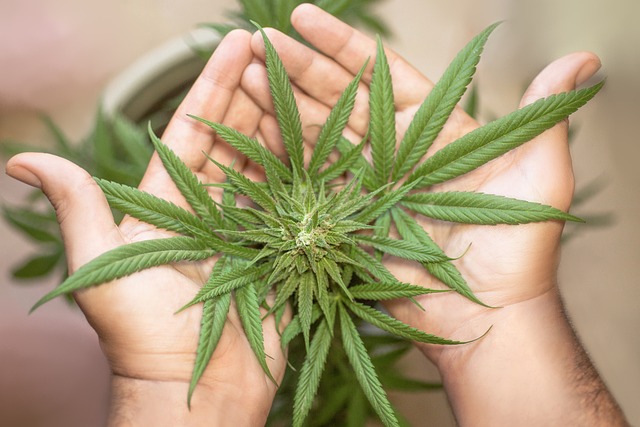
THCA, or Tetrahydrocannabinolic Acid, is a non-psychoactive cannabinoid found in raw cannabis plants, which, when heated, converts into the more well-known psychoactive compound THC. Unlike its psychoactive counterpart, THCA is gaining attention for its potential therapeutic properties without the mind-altering effects. When comparing THCA bud to CBD bud, several distinctions emerge. For one, while both contain less than 0.3% THC as per legal definitions in many jurisdictions, THCA buds have higher concentrations of THCA versus CBD buds, which have higher levels of cannabidiol (CBD). This differentiation is significant for consumers seeking the potential benefits associated with each cannabinoid. THCA buds are often used for their potential analgesic and anti-inflammatory effects, while CBD buds are favored for their calming properties and ability to support overall wellness without intoxication. Understanding the nuances between THCA and CBD, and how they interact with the body’s endocannabinoid system, is crucial for consumers looking to harness the unique benefits of each cannabinoid.
When considering the use of THCA or CBD buds, it’s important to note the varying effects and potential side effects. THCA flower, while non-psychoactive, can still cause some side effects such as drowsiness, dry mouth, or reduced blood pressure, similar to CBD. However, these are generally mild and can be managed with proper dosing and usage guidance. Users interested in exploring the benefits of THCA should approach it with caution, especially if they have pre-existing conditions or are taking other medications, as cannabinoids can interact with various physiological processes. It’s also worth mentioning that the legal status of THCA and CBD varies by location, and users should ensure they comply with local laws regarding cannabis products.
The Science Behind THCA and Its Potential Effects
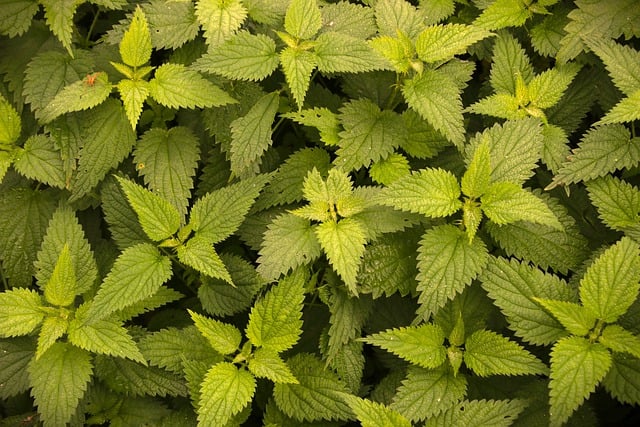
delta-9-tetrahydrocannabinolic acid (THCA) is the raw, non-psychoactive precursor to the well-known psychoactive cannabinoid THC. Found abundantly in raw cannabis plants, THCA has garnered attention for its potential therapeutic properties and has been a subject of growing scientific interest. Unlike its psychoactive counterpart, THCA does not induce euphoria but interacts with the body’s endocannabinoid system through its affinity for both CB1 and CB2 receptors. This interaction may influence various bodily functions including pain sensation, inflammation response, and immune system activity.
Research suggests that THCA may possess anti-inflammatory, anti-nausea, anti-emetic, anti-spasmodic, and neuroprotective qualities, making it a potential therapeutic agent. The effects of THCA are believed to be distinct from those of CBD (cannabidiol) and its derived products, such as CBD buds. While both cannabinoids share the same molecular family, their differing interactions with the endocannabinoid system result in unique therapeutic profiles. For instance, while THCA may exhibit stronger affinity for certain receptors than CBD, which has a lower affinity for these receptors, it does not produce the psychoactive effects that THC does upon decarboxylation. This process, where THCA converts to THC under heat, is what alters its effects profile. The comparison between THCA bud and CBD bud is particularly relevant in understanding their distinct roles in potential wellness regimens, as both may offer complementary benefits without the high associated with traditional THC-containing products.
THCA Flower Side Effects: What Users Should Know
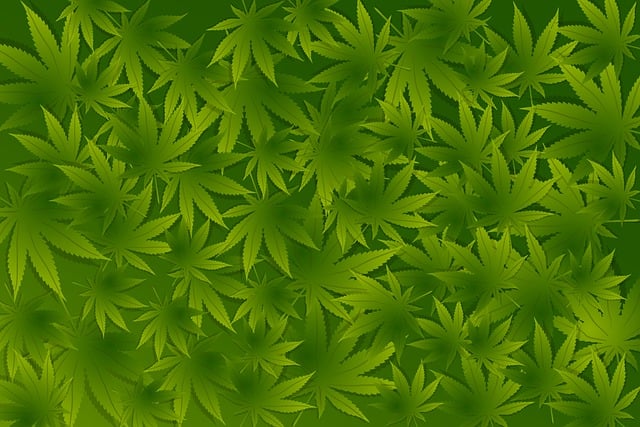
When exploring the effects of THCA flower, which is the raw form of tetrahydrocannabinolic acid, a precursor to THC found in cannabis, it’s crucial for users to understand its distinct properties compared to CBD buds. Unlike THC, THCA is non-psychoactive, meaning it does not induce the ‘high’ associated with cannabis use. However, it exhibits potential therapeutic benefits that users should be aware of. Reports suggest that THCA flower may offer analgesic and anti-inflammatory properties, making it a subject of interest for those seeking relief from pain without psychoactive effects. Users considering THCA bud vs CBD bud should note that while both can provide medicinal benefits, the effects of THCA may be more pronounced in certain conditions due to its interaction with the endocannabinoid system.
As with any substance, users must be cautious and aware of potential side effects. THCA flower side effects can include dry mouth, red eyes, and mild anxiety, particularly at higher doses. It’s also worth noting that THCA, when exposed to heat or light, can degrade into THC, which could alter the intended effects. This conversion process underscores the importance of proper storage to maintain the integrity of the THCA compound. Users should start with a low dose to gauge their individual sensitivity and adjust accordingly. Additionally, it’s advisable to consult with a healthcare professional before incorporating THCA flower into one’s wellness regimen, especially if the user has underlying health conditions or is taking other medications. Understanding the nuances between THCA bud vs CBD bud can help users make an informed decision based on their needs and desired effects.
Comparing the Therapeutic Properties of THCA vs CBD
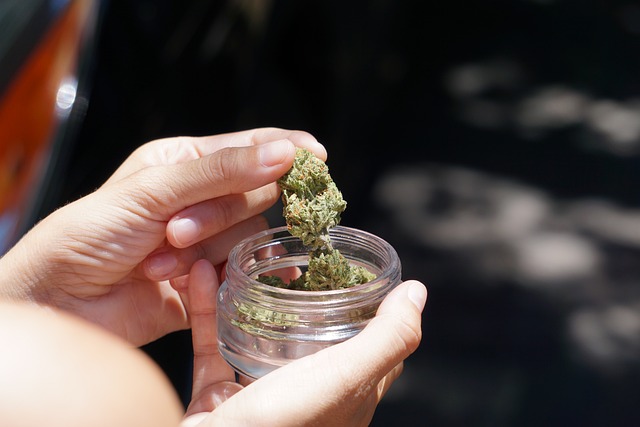
Delta-9-tetrahydrocannabinolic acid (THCA) and cannabidiol (CBD) are two prominent compounds found in the cannabis plant, each with distinct therapeutic properties. While THCA is the non-psychoactive precursor to the well-known psychoactive compound Delta-9-THC, CBD is a non-psychoactive substance that has gained recognition for its wide array of health benefits. When comparing THCA bud vs CBD bud, it’s clear that their effects can vary significantly.
THCA buds are often sought after for their potential pain-relieving and anti-inflammatory properties. Users report that THCA may be effective in managing chronic pain, neuropathy, and inflammation due to its interaction with the body’s endocannabinoid system. This suggests that THCA buds could be particularly beneficial for conditions like arthritis or multiple sclerosis. On the other hand, CBD buds are celebrated for their calming and anxiolytic effects, making them a preferred choice for individuals looking to alleviate anxiety, depression, or stress-related symptoms without the high associated with THC. Additionally, CBD is known to have neuroprotective and antioxidant properties, which may contribute to its therapeutic potential in neurological disorders. Both THCA and CBD buds offer unique benefits and can be used independently or in conjunction for a tailored therapeutic effect. Users interested in exploring the differences between THCA bud vs CBD bud should consider their specific health needs and consult with healthcare professionals for personalized guidance.
The Role of Dosage in Experiencing THCA Flower Side Effects
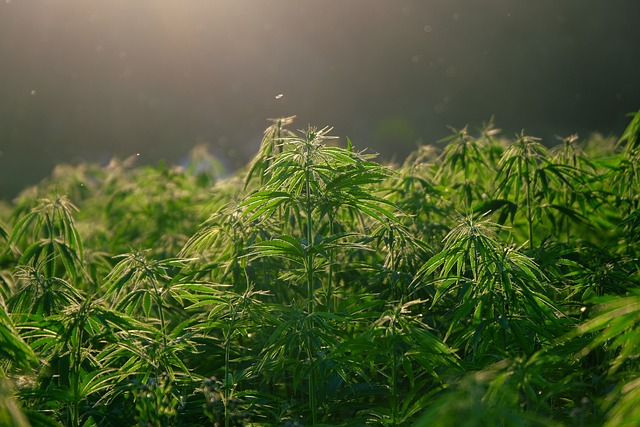
THCA flower, which contains the non-psychoactive cannabinoid tetrahydrocannabinolic acid (THCA), offers many potential health benefits similar to those of its counterpart CBD, but with distinct effects due to its chemical structure. When considering the role of dosage in experiencing THCA flower side effects, it’s crucial to understand that THCA buds and CBD buds differ significantly in their psychoactive properties. THCA buds can produce a mild euphoria or high when consumed, whereas CBD buds are non-psychoactive and do not induce such effects. The dosage of THCA flower directly influences the intensity of its psychoactive impact as well as any potential side effects.
For instance, at lower doses, THCA is known to provide uplifting and energetic effects without the strong psychoactive punch associated with its decarboxylated form, THC. As the dose increases, so might the likelihood of encountering side effects such as anxiety, paranoia, or discomfort in some individuals. It’s important for consumers to start with a low dose and gradually increase it while monitoring their body’s response. This approach allows users to find the optimal dosage that balances therapeutic benefits with minimal adverse reactions. Additionally, individual sensitivity varies; factors like body chemistry, tolerance, and prior experience with cannabis can influence how THCA affects an individual. Therefore, personalization of dosage is key when using THCA buds, ensuring a safe and beneficial experience while minimizing the risk of unwanted side effects.
In conclusion, the exploration into the differences between THCA flower and CBD bud has underscored the distinct properties and potential effects of each. While both serve as natural alternatives for health and well-being, understanding the science behind THCA’s composition and its unique potential benefits is crucial for informed decision-making. It is imperative for users to be aware of the side effects associated with THCA flower consumption, which can range from mild to severe, depending on dosage. As highlighted throughout this article, the therapeutic properties of THCA contrast with those of CBD, necessitating a discerning approach when choosing between them. Users should consider their individual health needs and consult healthcare professionals before incorporating either into their wellness routine, particularly given the potential side effects that can arise from THCA bud use. By weighing the evidence and understanding the nuances of each compound, consumers can make more informed choices regarding their use, ensuring a safe and beneficial experience.
